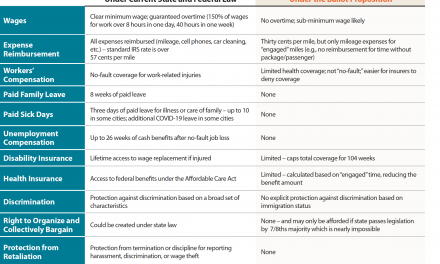John F. Kennedy is credited with popularizing the aphorism “a rising tide lifts all boats,” to suggest that investing in economic development can benefit everyone who participates in the economy. In the labor movement we’ve seen first-hand how true this adage really is. Take for example the wage increases issued at non-union automakers after the United Auto Workers (UAW) historic Stand-Up strikes.
Seven Asian and European automakers gave generous wage increases to their hourly production workers in the US shortly after the UAW agreed on new contracts with the Detroit Three.
“Toyota isn’t giving out raises out of the goodness of their heart,” said Shawn Fain, UAW President. “They could have just as easily raised wages a month ago or a year ago, they did it now because the company know we’re coming for them.”
Fain made the remarks as he announced the union’s intent to organize the 13 non-union automakers across the country.
In what the US Treasury Department calls “a first-of-its-kind” report on labor unions and their effect on strengthening the middle class and growing the economy at large, Deputy Assistant Secretary for Microeconomics Laura Feiveson outlines how unions make the economy more equitable and robust.
The Treasury’s report challenges the view that worker empowerment holds back economic prosperity but instead suggests that strengthening unions will improve the well-being of the middle class.
Among its key finding, the report states that unions raise wages for their members by 10-15 percent, improve fringe benefits and workplace procedures such as retirement plans, workplace grievance policies and predictable scheduling. It also states that unionization has spillover effects that extend well beyond union workers.
“Competition means workers at nonunionized firms see increased wages too,” the report finds. “Heightened workplace safety norms can pull up whole industries. Union members improve their communities through heightened civic engagement; they are more likely to vote, donate to charity, and participate in a neighborhood project. And the higher pay and job security of both union and nonunion middle-class workers can further spill over to their families and communities through more stable housing, more investment in education, and other channels.”
The report was issued by the Treasury Department’s Office of Economic Policy. It represents one of over 70 actions implemented by the White House Task Force on Worker Organizing and Empowerment, chaired by Vice President Harris. A full copy of their finding can be found online at https://home.treasury.gov/news/press-releases/jy1706.







